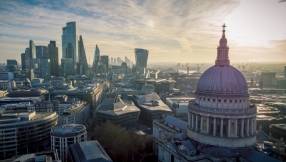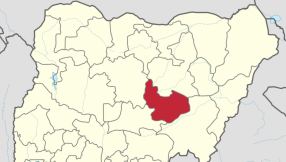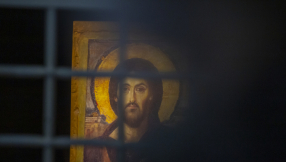
This time, last year the University of Kent's campus was awash with bishops and their spouses – they gathered round picnic benches to study the Bible and sang as they sat under the trees. The formal proceedings took place in a huge marquee surrounded by a courtyard and a large resources area.
The long-awaited 15<sup>th Lambeth Conference had finally arrived. Due to take place in 2018, the Archbishop of Canterbury, Justin Welby, first delayed the conference in the hope that tensions in the Anglican Communion might lessen, and was then forced to postpone the 2020 event due to Covid-19.
Four years late and with only two-thirds of the bishops in attendance, the Archbishop of Canterbury opened the conference. He explained that his prayer for the event was simple: "That everyone here, whoever you are, wherever you have come from, observer, steward, ecumenical guest, bishop, bishop's spouse – whoever - whatever hopes and fears you may bring with you, that you leave with your heart full of desire for friendship with Jesus Christ."
In his video marking the first anniversary since the gathering, Welby looked back and remarked that those gathered at the Lambeth Conference had "offered and received hospitality from one another".
Christians meeting to offer one another hospitality and encourage one another to love the Lord Jesus is a good thing – something that happens every day around the world - but surely one would hope that the legacy of the Lambeth Conference would be greater than that. It is, after all, one of four 'Instruments of Communion' that Anglicans have historically relied upon to maintain unity, and it is likely to have cost well over £5m.
Despite a third of the bishops boycotting the event, there were more than 600 bishops present from about 165 countries. So much could have been achieved, but the organisers of the Lambeth Conference could not risk public dissent so there were no resolutions and no votes (some may remember how the 'non-voting machines' disappeared very quickly). Instead, in a process reminiscent of the Delphi Method, the agenda was set, and the final words of the 'Calls' were chosen by carefully selected 'drafting groups'.
The final wording of the Calls published a few weeks ago, with very little change, suggests the discussions of the gathered bishops had very little impact - another indication of the impotence of the Lambeth Conference. It is now up to individuals, parishes and dioceses to read the Calls and do with them what they will.
There were, however, two interventions of significance. The first came before the Conference even began – the original draft of the Human Dignity Call stated:
"It is the mind of the Anglican Communion as a whole that same gender marriage is not permissible. Lambeth Resolution I.10 (1998) states that the 'legitimizing or blessing of same sex unions' cannot be advised. It is the mind of the Communion to uphold 'faithfulness in marriage between a man and a woman in lifelong union' (I.10, 1998)."
Leaders of the liberal churches were outraged, letters were written, Twitter stormed and before a single bishop had arrived in Canterbury a new version was published, reversing the original position and introducing plural truth to the whole Anglican Communion:
"Many Provinces continue to affirm that same gender marriage is not permissible. Lambeth Resolution I.10 (1998) states that the 'legitimizing or blessing of same sex unions' cannot be advised. Other Provinces have blessed and welcomed same sex union/marriage after careful theological reflection and a process of reception."
The second significant intervention came from the leaders of the Global South Fellowship of Anglicans (GSFA), represented by Archbishop Badi, who said at the time, "Today in Canterbury, we may be gathered together, but we most certainly cannot 'walk together' until provinces which have gone against Scripture – and the will and consensus of the bishops - repent and return to orthodoxy."
They wanted an opportunity for the bishops gathered at Lambeth to vote on whether Lambeth I.10 remained 'the mind of the Communion' but this was disallowed and instead the Archbishop of Canterbury announced that matters of human sexuality were now matters indifferent, the ultimate adiaphora, and ignoring the words of the GSFA he claimed that the bishops gathered at Lambeth were committed to "walking together", something which he had to admit later was untrue.
The decision of the Archbishop of Canterbury to ignore the views of the GSFA last year and then to ignore them again in February, when he encouraged General Synod to vote in favour of the Prayers of Love and Faith, have had catastrophic consequences for the Anglican Communion. The vast majority of Anglicans, represented by Gafcon and the GSFA, have rejected Justin Welby's leadership and are working out how to reset the Anglican Communion without him or the other Instruments of Communion.
In 2008, after the last Lambeth Conference, the Rt Rev Richard Ellena, Bishop of Nelson, New Zealand, said: "I believe that this has been the most expensive exercise in futility I have ever been to." He retired at the end of 2018, so was not invited to last year's omnishambles but a year on it seems that Lambeth 2022 has stolen that accolade.
Susie Leafe is director of Anglican Futures, which supports orthodox Anglicans in the UK.













